Father’s Cancer Pushes Son to Start Natural Farming. He Now Earns Rs 27 Lakh/Year
He grows banana, turmeric, sugarcane, guava, litchi, purple yam and traditional rice varieties in the Surat district.
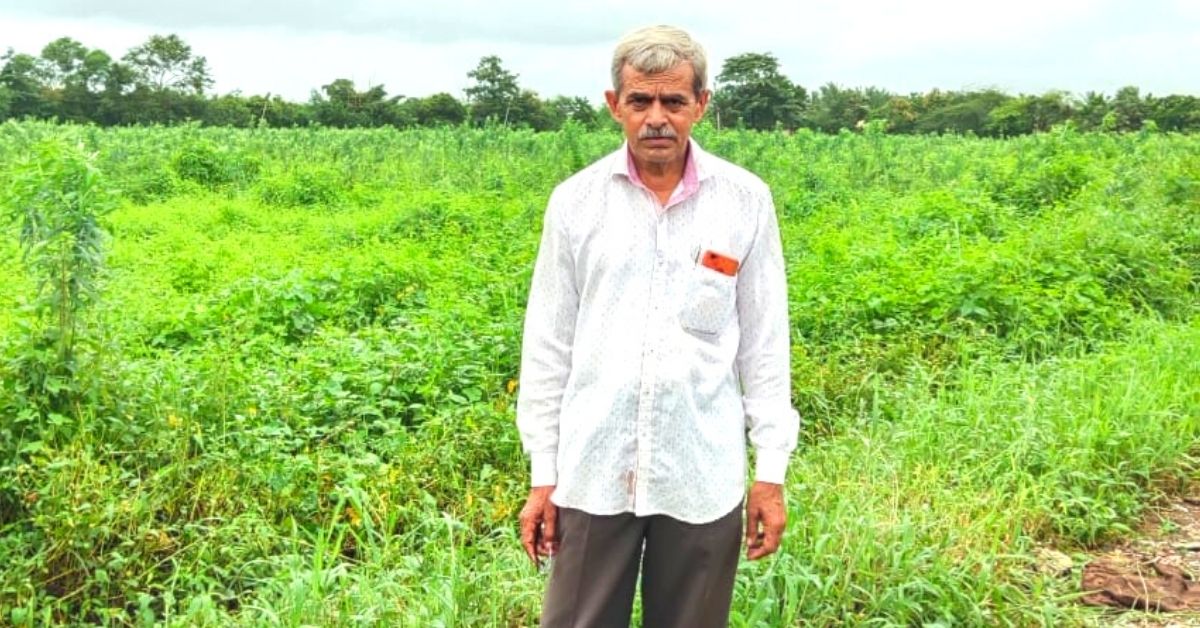
When his elderly father was diagnosed with cancer, Ramchandra Patel, a farmer based in Olpad, Surat, found it difficult to wrap his head around the news. They were farmers. They grew their own food, did not drink or smoke and ate healthy most of the time. How could this happen?
It took 13 trips to a Mumbai hospital and multiple consultations with doctors for Ramchandra to understand that the culprit — the chemicals and harmful pesticides that they used for an effective yield — had been in front of them all along.
The revelation served as a wake-up call. Although his father succumbed to the deadly disease, Ramachandra decided to put an end to chemical farming, and switch to natural ways. By 1991, he began practicing Zero Budget Natural Farming (ZBNF) on a plot of non-agricultural land and worked to convert it into a fertile one.
Today, Ramchandra says this was the best decision that he ever made. The ZBNF farming technique has helped reduce his input costs significantly and increase his returns. Per annum, one acre fetches him up to Rs 1.5 lakh putting his overall income at Rs 27 lakh from 18 acres.
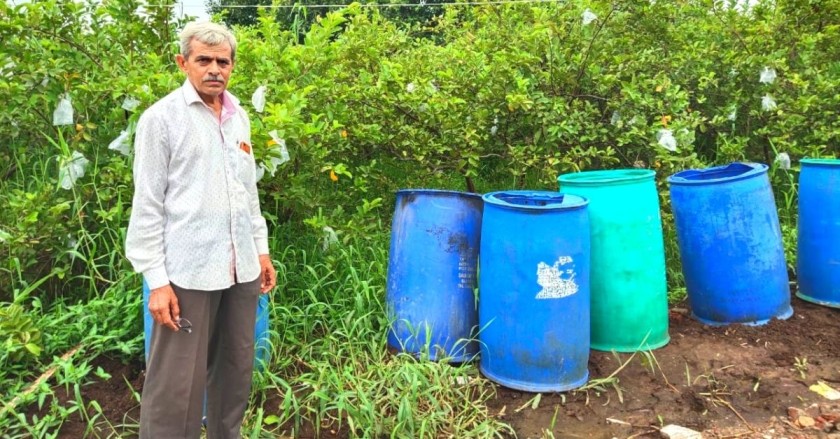
“My input cost is negligible, the microbial activity in the farm’s soil is massive, production output is high and my returns are profitable. On a more personal level, my immunity system has improved, and now I am no more feeding poison to my customers,” says the farmer speaking to The Better India.
The bounty from his farm includes banana, turmeric, sugarcane, guava, litchi, purple yam, traditional rice varieties, finger millets, wheat and so on.
On Converting “Non-Cultivable” Land
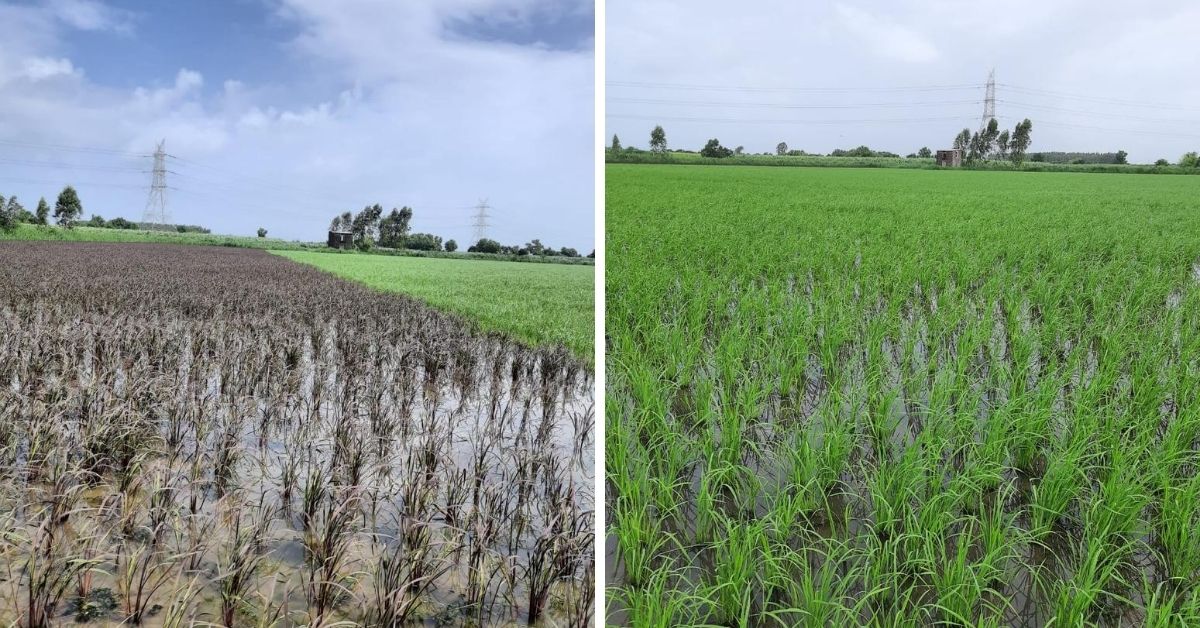
Ramchandra was born into a family that has practiced agriculture for generations, and, although he acquired a BCom degree, he found it impossible to stay away from farming, taking it up seriously in the 80’s.
An added advantage of growing up in an agrarian family is the in-depth understanding of the symbiotic relationship between nature and farming that one acquires. When he learnt about natural farming, he got more clarity and wanted to develop a farm model where nature does everything.
“Nobody goes and tills the land in a forest or does watering. The forest creates a platform for the plants and trees to thrive and does not care about the yield. I too focussed on enriching my land. Healthier the land, better is the output. Natural regeneration of the earthworms and soil-dwelling organisms on the farm is the key,” explains Ramchandra.
His knowledge was probably the reason why he decided to take a risk of starting a fairly new farming technique on barren land.
“I was advised against purchasing this inexpensive and infertile land that would only result in a disaster. The only reason I went ahead was that I believed in the power of nature. It made me confident and willing to take the risk,” he says.
Earthworms act like a treasure, he says. They thrive in land with an abundance of biomass. They feed on organic matter like decayed leaves along with the soil as well as on cow dung. In return, they churn rich compost every 24 hours that ultimately provides all the nutrients to plants.
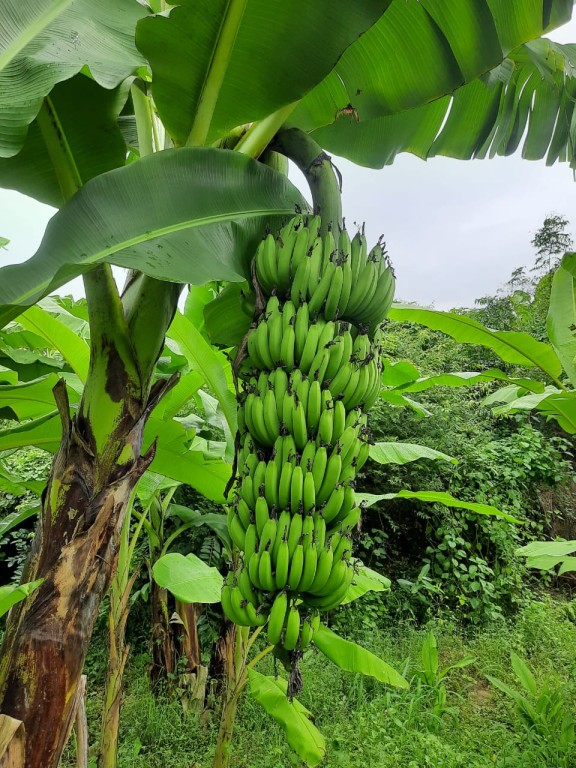
“Besides, earthworms’ burrowing action can effectively till the land while creating a porous structure to the soil. This porous land allows water to easily penetrate underground, thus recharging the eater tables. It also retains air and moisture for longer periods that are necessary for the roots,” he says.
To develop this cycle, he first had to make his land fertile.
He began by recycling all crop residues and biomass, and covering the farmland either as a mulch or green manure. He followed it up by adding jeevamrut (a mixture of cow dung, cow urine, water and jaggery) to the soil. The two bio-inputs increase soil fertility and promote bacterial activity.
Keeping the weeds is another beneficial approach he uses. “I usually clear the weeds without uprooting its roots. The roots below the ground surface act as mulch and they serve as food for the soil-dwelling creatures.”
Ramchandra religiously followed the practice and after three years of hard work and umpteen failures, the unimaginable happened.
His farmland was now fertile.
How His Farming Is Zero Budget
Ramchandra says the first rule in any business is ensuring that the input cost is minimal or at least less than the revenue. It is no secret that many farmers across the country heavily rely on chemicals that increase the overall input cost.
With ZBNF, the idea is to eliminate the costs associated with these external inputs that cause indebtedness, degradation of the environment and loss of soil fertility in the long run.
Ramchandra, therefore, focussed on preparing jeevamrut and the mulching process.
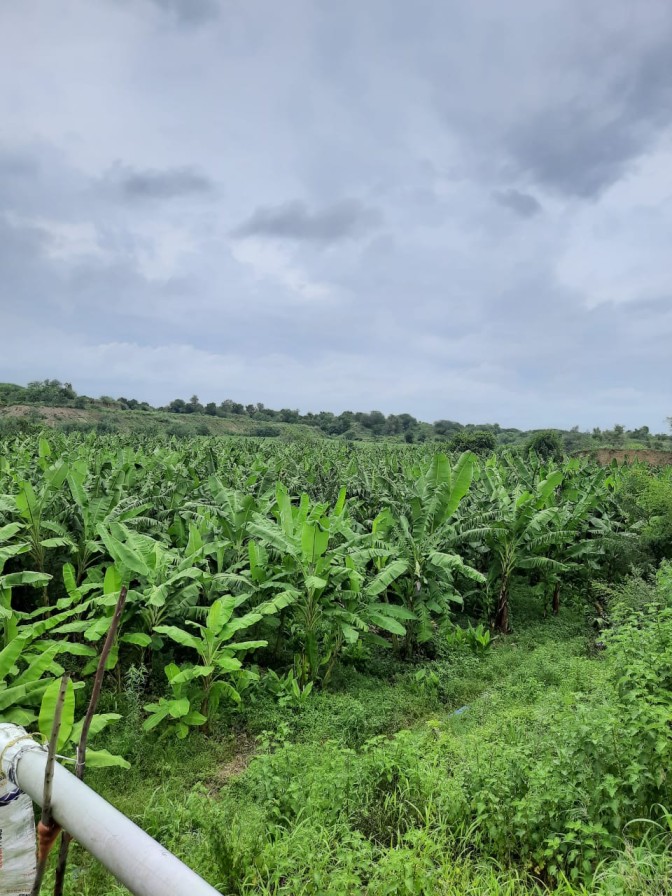
“Jeevamrut is fermented microbial culture to enhance soil fertility and keep fungal infections at bay. Cows help us complete the farming circle. While the cows help in grazing, their waste (urine and dung) is used to make jeevamrut at no cost,” says Ramchandra.
For mulching, he uses dry leaves to cover the soil instead of plastic sheets. Mulching is a gardening technique that suppresses weeds and conserves water in crop production. He digs three 3-4 feet-deep holes at intervals on the mulching sheet and sows seeds, “The holes protect the crops from damage during heavy rains. They absorb excess water and in turn recharge the groundwater,” he explains.
For sowing seeds, Ramchandra applies the intercropping method, one where two or more plants are cultivated on the same land. He has chosen plants that complement each other. For instance, he has used this method to grow bananas and turmeric together, as the latter helps in controlling fungal infections. Also, turmeric needs less sunlight so the banana leaves provide shade.
“Intercropping uses sunlight and water more efficiently when compared to crops planted separately. The reduced distance also keeps insects at bay. Jeevamrut and mulching further helps in plant growth,” says Vanrajsinh Gohil, a farmer from Bhavnagar, speaking to The Better India. Through ZBNF, Gohil was able to double his income in just six months. Read his story here.
To protect the crops from pestilence, Ramchandra uses a concoction of neem and cow urine, “The bitter smell of neem prevents insects from forming their colonies.”
In addition to this, Ramchandra uses the drip irrigation method that provides water directly to the roots and, in turn, cuts down usage of water by 50 per cent.
Impact
Ramchandra says that ever since he discontinued chemical spraying in his farm, his skin allergies have significantly reduced, and his immunity has improved.
Inspired by this change, Ramchandra tries to keep the price of his produce in sync with chemical-infused food for he wants more people to buy healthy food, “My input costs have allowed me to keep nominal rates but depending on the weather conditions, I have to increase the prices sometimes,” says Ramchandra.
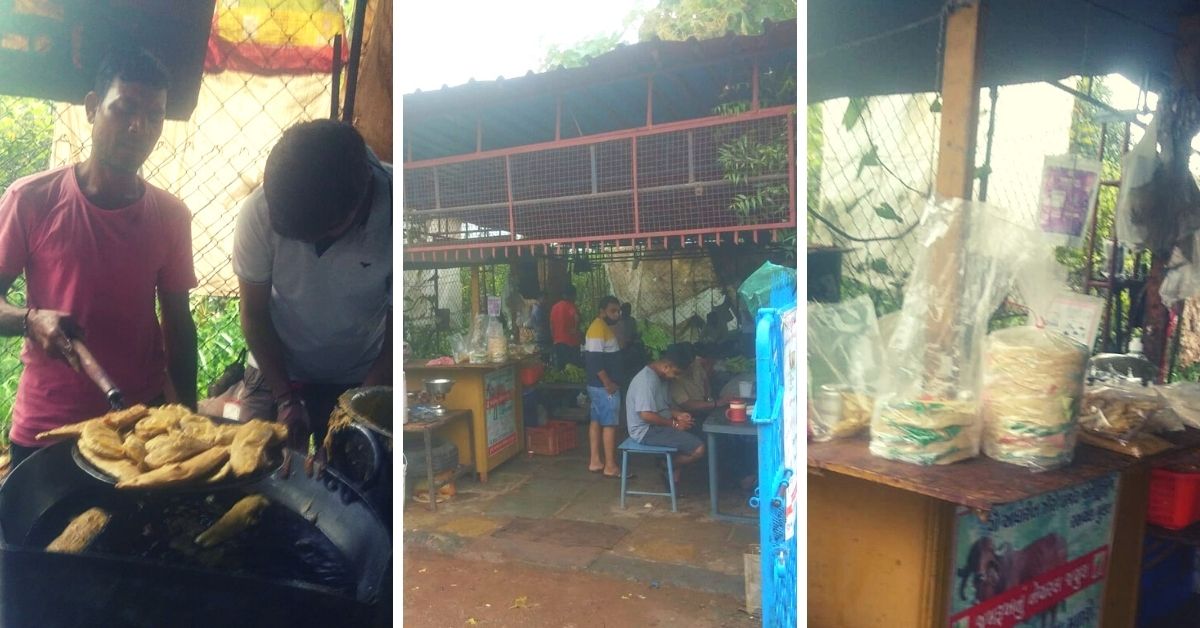
As an additional source of income, Ramchandra also makes value-added products that include banana chips, sugarcane juice, yam wafers, turmeric powder, ratalu puri bhajiya and tomato puris. He sells the items and produce in his outlet that is located right outside his farm. People residing in the Surat district can also avail the home delivery option.
One of his loyal customers, Madan Shah from Surat, does not mind paying a little extra if it means keeping his family safe.“Ramchandra was very welcoming and gave me a tour of his farm and techniques. We have been sourcing our food from his farm for a couple of years now and I have seen the change in my health — I don’t fall ill that often anymore. Eating the right food can make a huge difference,” Madan tells The Better India.
It took a tragic event for Ramchandra to realise the massive damage that chemicals can cause on the environment and humans. But he is hopeful that with more and more farmers adopting eco-friendly practices, access to clean, healthy food will only increase, and help consumers live longer healthier lives.
Edited by Gayatri Mishra
This story made me
-
97
-
121
-
89
-
167
Tell Us More
We bring stories straight from the heart of India, to inspire millions and create a wave of impact. Our positive movement is growing bigger everyday, and we would love for you to join it.
Please contribute whatever you can, every little penny helps our team in bringing you more stories that support dreams and spread hope.



















